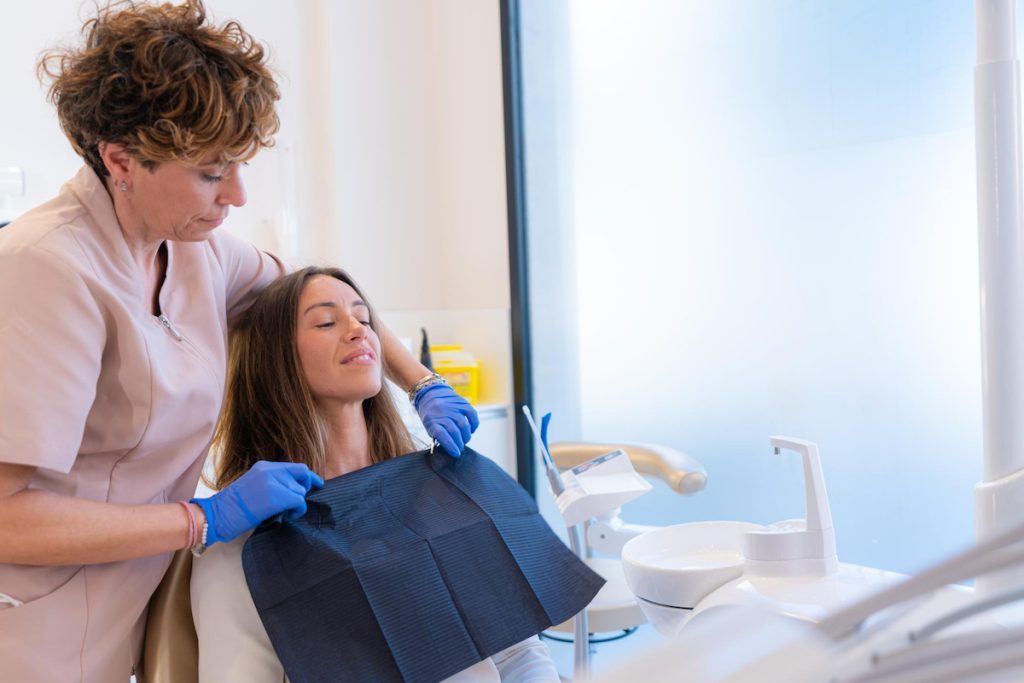Wisdom Teeth Extraction: How to Prevent Pain and Avoid Complications

Wisdom teeth extractions are popular among young adults, often performed in their late teens or early twenties.
Although preventing further dental issues is advisable, the procedure can be frightening. Preparing for surgery and preparing for post-surgery can reduce pain and risks.
Understanding Wisdom Teeth
Wisdom teeth, known as third molars, typically emerge between 17 and 25. For some, these teeth come in without any issues.
However, many people experience problems such as impaction, where the teeth don’t have enough room to emerge or grow properly.
This may result in discomfort, infection, and harm to nearby teeth.
Why Remove Wisdom Teeth?
Although not everyone requires wisdom teeth extraction, the following are typical causes:
- Impaction: When they get impacted in the mouth, either on the jawbone or gums, they cause pain and swelling.
- Crowding: Some developing wisdom teeth can cause other teeth to shift positions.
- Decay and Gum Disease: Wisdom teeth are more prone to cavities and gingivitis because they are located at the back of the mouth, which makes them more challenging to clean.
Preparing for Wisdom Teeth Extraction
Preparation is key to a smooth recovery.
Here’s what you should do before your wisdom teeth extraction:
- Consult with your Gordon Dentist or Oral Surgeon. They will make X-ray films to identify your wisdom teeth’ position and explain the process.
- Plan Your Recovery Time: You will require some days to recuperate, so ensure you get time off work or school to allow this process to happen.
- Prepare Your Home: Buy soft foods since you may not be comfortable with the texture of foods like steak, rice, or chicken. Ensure there are ice packs and any medicines your doctor had recommended available during the procedure.
- Follow Pre-Surgery Instructions: Your dentist may ask you to avoid eating or drinking for a certain period before surgery.
Wisdom Teeth Extraction Procedure
Depending on your comfort level and the difficulty of the extraction, wisdom teeth extractions are typically performed under local anaesthesia, sedation, or general anaesthesia.
It usually takes 45 to an hour to complete the process. Here’s a brief overview:
- Anesthesia Administration: The dentist will numb the area around the teeth.
- Extraction: The first and special approach that the dentist will make is to cut the gum tissue over the tooth and the bone. If the tooth is way deep, it might have to be pulled out in parts, which may involve slicing the tooth into pieces to remove it easily.
- Stitches: In some cases, stitches may be used to close the gum incision.
Post-Operative Care
Proper aftercare is crucial for preventing pain and complications.
Here are some essential tips:
- Control Bleeding: Apply pressure with a gauze pad over the extracted tooth to minimise bleeding. Replace gauze pads once they are saturated with blood.
- Manage Swelling and Pain: Apply an ice pack to your face for 15-20 minutes during the first 24 hours. Take prescribed pain medicines as directed.
- Rest: Avoid strenuous activities for a few days. When lying down, keep your head elevated with pillows to minimise swelling.
- Diet: Avoid hard foods and everything you have to chew for the first few days. Avoiding hot, spicy, or hard meals that could irritate the extraction site is advised.
- Hydrate: Take much water but do not use a straw to drink because the sucking action can remove the clot that forms in the socket and leads to a dry socket.
- Oral Hygiene: In some instances, it is important not to brush the teeth in the area of the extraction site for the first day or one day later. Next, warm saline oral rinse should be used in your mouth several times a day, preferably after every meal.
Recognising and Preventing Complications
While complications are rare, it’s essential to be aware of potential issues and know when to contact your dentist:
- Dry Socket: This happens when the clot formed in the socket is carried away before a new socket has formed or when the clot dissolves and the wound gapes open, revealing the bone and nerves. Symptoms include intense pain and a sensation of having an unpleasant taste in your mouth. Avoid smoking, spitting and taking straws to avoid the formation of dry sockets.
- Infection: Signs of infection include fever, increased pain, swelling, and discharge from the extraction site. Keeping the area clean and following your dentist’s instructions can help prevent infection.
- Nerve Injury: Nerve injury is uncommon but can cause tingling or numbness in the tongue, chin, or lower lip. It is usually temporary and should be reported to your dentist.
Long-Term Care
Unlike other body parts, practising good oral hygiene while attending regular dental appointments after recovery is crucial to support positive health.
Here are some tips for long-term care:
- Regular Dental Visits: Maintain regular dental check-ups to get your teeth cleaned and examined by a professional.
- Oral Hygiene: Brush and floss regularly, paying extra attention to areas where wisdom teeth were removed to prevent plaque build-up.
- Healthy Diet: A safer diet with adequate vitamins and minerals to support oral health.
Wisdom Teeth Extraction in Gordon
Don’t let wisdom teeth pain disrupt your life. Proper preparation and timely care can ensure a smooth recovery.
At Northern Dental Gordon, we are not just here to take care of your dental problems; we want to make your visit a positive and worthwhile experience to help you maintain oral health for years.
Call us at (02) 9498 8290 or book an appointment online.
We are located at Suite 3, 2 St Johns Ave in Gordon.
